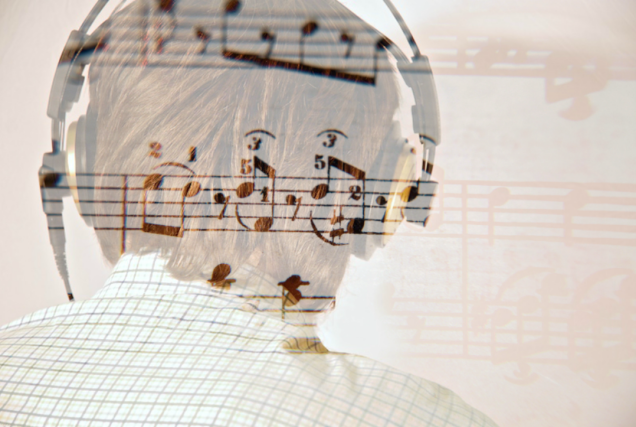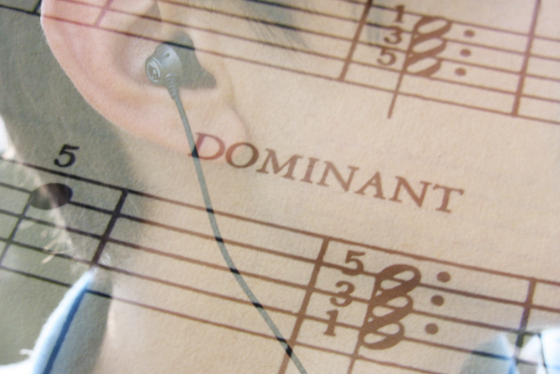Your personal music search space.
Augment your understanding of music.

______________________________________________________________________________

YMUSIC SEARCH ENGINE
Since antiquity, human beings have been conscious of themselves and wanted to fix knowledge to ensure that future generations can also benefit from it. For its part, musical knowledge was first kept on stones: precursors to sheet music include antique cuneiform tablets and medieval manuscripts. Music printing appeared during the 15th century. Today, sheet music can be read and even played on a computer screen. As the ways to keep music changed, the ways to retrieve it changed through time. Besides libraries, musical knowledge can now be acquired on the internet. What is musical knowledge? How can music listeners increase their musical knowledge? What can a music search engine bring to the modern music listener? Know more about these topics by reading the following essays.
MUSIC, KNOWLEDGE ACQUISITION AND SEARCH ENGINE TECHNOLOGY
To acquire new musical knowledge, try YMusic. YMusic is a prototype of a music search engine which relies on a new music theory; it is designed for all music listeners who are searching for new music and who are trying to develop their knowledge, be they ordinary listeners or not.

To gain new musical knowledge, try YMusic. YMusic is a prototype of a music search engine which relies on a new music theory; it is designed for all music listeners who are searching for new music and who are trying to develop their knowledge, be they ordinary listeners or not.
A MUSIC SEARCH ENGINE HELPING MUSIC LISTENERS TO EXPLORE THEIR VARIOUS MUSICAL IDENTITIES?
When users operate a computer system, it is because they want to achieve a target: to search for information or to listen to music, for instance. Computers are very functional. Search engines are not the minds of computers, which are just material objects with no consciousness. Their algorithms are instructions given by a human software engineer in order to find information that humans only transform into knowledge and wisdom. Furthermore, search engines give access to various sources of information and they can be considered as real progress in terms of storage and accessibility: during the pre-computer area, the contents of a complex catalog, for example, had to be written on millions of index cards.
Let us notice that knowledge acquisition is not always theoretical, for instance in the case of music: it involves perception and thus the use of the senses. The listener perceives sounds. Then comes reasoning. When listeners discover a new piece of music and think about its structure, they enrich their mental models, those models being representations listeners have of the things with which they interact as well as the environment, others and themselves. In this environment, the computer is now a privileged object. Listening to music on a computer is now usual in a lot of countries: since the collapse of compact discs in favor of platforms, music listening, knowledge acquisition and computer systems are linked in special ways.
Each music platform is special and is the result of a software engineering work done in order to achieve a specific goal. For instance, streaming platforms want to provide large amounts of music to an extended number of listeners, using elementary cultural criteria like age, gender and location to make cursory recommendations. The YMusic search engine, currently a prototype, wants to help music listeners to make more specific searches based on musical criteria. Its algorithm is designed to increase the level of control music listeners can have over their music listening practice. In fact, the amount of music that is available online is in a sense an advantage: too much is always better than too little. However, this abundance has side effects: music listeners are lost in a sea of music and they do not always have other points of reference than those given by the media, which often put emphasis on novelty. Yet listeners may also want to understand the spirit of music itself in a more subjective way, and take their own musical tastes into account. Listeners have the abilities to understand music detached from song and sometimes, they even aspire to grasp the essence of music and what music means for them, as individuals. That is only natural, because music composers’ works are, in a sense, subjective, as they are created by individuals. However, music compositions present a very objective side, depending on rules that are specific to music. These rules are numerous and presented from various angles in numerous theories of music. One of these theories, a new one, has inspired the design of YMusic, which wants to uncover the true nature of music. Is such a theory useful to approach popular music or is it only the affected theorizing, reserved for classical music? Actually, the theory can be applied to all styles of music, including popular styles so, yes, it is helpful.

WHY A MUSIC SEARCH ENGINE BASED ON A NEW MUSIC THEORY?
When users operate a computer system, it is because they want to achieve a target: to search for information or to listen to music, for instance. Computers are very functional. Search engines are not the “minds” of computers, which are just material objects with no consciousness. Their algorithms are instructions given by a human software engineer in order to find information that humans only transform into knowledge and wisdom. Furthermore, search engines give an access to various sources of information and they can be considered as a real progress in terms of storage and accessibility: during the pre-computer era, the content of an elaborated dictionary, for example, had to be written on millions of index cards.
Let us notice that knowledge acquisition is not always theoretical, for instance in the case of music: it involves perception and thus the use of the senses. The listener perceives sounds. Then comes reasoning. When listeners discover a new music and think about its structure, they enrich their mental models, those models being representations listeners have of the things with which they interact as well as the environment, others and themselves. In this environment, the computer is now a privileged object. Listening to music on a computer is now usual in a lot of countries: since the collapse of compact discs in favor of platforms, music listening, knowledge acquisition and computer systems are linked in special ways.
Each music platform is special and is the result of a software engineering work made in order to achieve a specific goal. For instance, streaming platforms want to provide important amounts of music to an extended number of listeners, using elementary cultural criteria like age, gender and location to make cursory recommendations. The YMusic search engine, currently a prototype, wants to help music listeners to make more specific searches based on musical criteria. Its algorithm is designed to increase the level of control music listeners can have over their music listening practice. In fact, the amount of music that is available online is in a sense an advantage: too much is always better than too little.
However, this abundance has side effects: music listeners are lost in a sea of music and they do not always have other points of reference than those given by the media, which often insist on novelty. Yet listeners may also want to understand the spirit of music itself, in a more subjective way, and take their own musical tastes into account. Listeners have the ability to understand music detached from song and sometimes, they even aspire to get the essence of music and what music means for them, as individuals. That is only natural, because music composers’ works are, in a sense, subjective, as they are created by individuals. However music compositions present a very objective side, depending on rules that are specific to music. These rules are numerous and presented from various angles in numerous theories of music. One of these theories, a new one, is inspiring the design of YMusic and it wants to uncover the true nature of music. Is such a theory useful to approach popular music or is it reserved for classical music? Actually, the theory can be applied to all styles of music, including popular styles so, yes, it is helpful.

To acquire new musical knowledge, try YMusic. YMusic is a prototype of a music search engine which relies on a new music theory. It is designed for all music listeners who are searching for new music and who are trying to develop their knowledge, be they ordinary listeners or not.
A MUSIC SEARCH ENGINE TO GET MORE CONTROL OVER THE SEARCH PROCESS?
Usually, the users of a general search engine get better results when they use the right keywords. It is the same with a music search engine. The more the users really love the musical content of a first song contained in the database, the easier it will be for the search engine to present an acceptable or a good match, based on the principle of similarity. Searching requires an effort and, most of the time, typical searchers want to minimize this effort and nevertheless get the best results. However, the more users refine their search through successive attempts, the more likely they are to get accurate and easy-to-use results. As always, it is a question of will and time, a question of personal interest. Of course, the search engine must be efficient.
How does a search engine work? The best search engines are trusted because their search capabilities can help their users to find needles in haystacks. How? They reduce the scale of the hay bales so that the needles look bigger. However, it is not always so easy and sometimes, users can be guided to unexpected haystacks or even to other needles which are included in other hay bales. What does it mean? That search engines still experience difficulties in meeting users’ objectives. It is still the case that they have eliminated numerous obstacles to the dissemination of knowledge: everyone can access numerous resources at anytime and from anywhere. That is great progress: before, only researchers could get an easy access to knowledge, whatever the discipline. Also, everyone had to make their searches during the working hours of librarians. Search engines’ constant technological improvements help all people who want to think, to liberate their ideas and, with some willpower, to master all kind of knowledge. As one of the latest forms of technology, search engines even contribute to the development of civilization, shaping the world in new ways. By the way, it is not surprising that technologies are useful in terms of knowledge acquisition: the word technology is made of ‘techne’ which, in Greek, means a craft or an art, and of ‘ology’, a suffix that expresses the idea of learning. Technology was first used to name the study of the mechanical arts, then significant inventions in relationship to applied sciences; both meanings are still current today.
In the field of music, we may notice that the YMusic search engine, which as of now exists in prototype, offers a type of search that is described as contextual: exploring the main facets of music, it helps to examine all these different facets separately. Thus music becomes more findable and music listeners can understand more easily what are the main elements that constitute a piece of music, musically speaking. As the search process is more interactive, they get more control over their searches, they build a deeper connection with music. And when music listeners know what type of musical knowledge they want to acquire, the music search engine can hasten the knowledge acquisition process.


Do you want to gain new musical knowledge? Try YMusic. YMusic is a prototype of a music search engine which relies on a new music theory; it is designed for all music listeners who are searching for new music and who are trying to develop their listening skills!
CAN A MUSIC SEARCH ENGINE HELP MUSIC LISTENERS TO UNDERSTAND MORE EASILY THE CONTENT OF THE MUSIC THEY LOVE?
The development of the internet has led to the appearance of transliteracy, which is the ability to acquire knowledge across various platforms of all types, reading, writing and interacting. Transliteracy inevitably leads to the creation of new knowledge as well as to its acquisition. And in the field of music, the more platforms, the easier it is, for the listener, to explore the meanings of music in various ways, critically, without even knowing how to read a piece of sheet music. And they do it for free. At all times, human beings have sought to reduce the cost of searching and one main way they have found over recent centuries is transportation technologies. Then came the internet and for various types of consumers, a vast part of the information they were searching for became free, including musical information.
As the cost of searching for and even of the consumption of music online reached zero, the power of the music listener increased. As most of the music industry revenues are now made out of live venues, listeners have become more demanding and savvy. YMusic, a music search engine currently under prototyping, is designed to meet their needs, offering them the possibility to change their search strategies and to find music according to musical criteria. It is possible because YMusic is based on a new music theory that takes the nature of music into account, as well as the effects it produces on music listeners. YMusic can help find music in a more accurate way because, instead of providing music based on criteria like age, gender or location, when a music listener makes a query, it offers the possibility to examine different facets of music at the musical level. Knowing more about what they like or not, music listeners can use YMusic to model their music search behavior and spend less time listening to music they do not really like.
A music search is a very specific type of search. It should not primarily rely on textual searches, on words contained in song titles or genres’ names. Actually, genres and titles can only be first points of entry. With YMusic, the music search relies on musical criteria, on the musical elements contained in a piece of music, independently of any cultural classification. Music search becomes more transparent: music listeners can understand more easily the content of the music they are interested in. Let us notice that, like all search engines, YMusic is based on an algorithm and it is actually searching an internal database containing musical information. Search engines are said to be still poor at serving what users exactly want, especially when they do not have a clear idea of what they are searching for. Is it the case for YMusic or does it deliver the best match with what users want? As we said, YMusic is currently a prototype and it is based on a new music theory. It includes thousands of songs but it is not a music archive or a streaming service. It is here to revolutionize music searches and all feedback coming from testers is welcome.
To acquire new musical knowledge, try YMusic. YMusic is a prototype of a music search engine which relies on a new music theory; it is designed for all music listeners who are searching for music that is new for them and who are trying to develop their knowledge, be they casual listeners or not.
ARTIFICIAL INTELLIGENCE, HUMAN INTELLIGENCE AUGMENTATION, SEARCH ENGINES AND MUSIC
Today, everyone is talking about artificial intelligence. Futuristic scenarios dramatize it, including the notion of singularity, which says that artificial intelligence will replace the human race on the Earth’s surface because human beings will become irrelevant. Actually, more reasonably, artificial intelligence may be defined as the ensemble of technologies that are developed to replicate human abilities, and intelligence augmentation is the use of information technology in order to extend human intelligence and human activities. This means that both are linked, as they both have a strong relationship to knowledge acquisition and management.
Artificial intelligence or AI can be taught easily certain forms of consciousness. For instance, it is easy to explain to a computer how to look at its own programs. But computers cannot regard themselves as objects in the world and consider what kind of progress they could make to achieve their targets: that kind of consciousness remains the privilege of human beings. That is why the human race is just essential to the future of artificial intelligence. AI is approached in a more coherent and optimistic manner when it is linked to the idea of multiplicity rather than the concept of singularity: AI will develop its potential along with humanity, being used by various groups of people that will work with different types of platforms. That last scenario is already underway, with search engines and recommender systems for instance.
What are the advantages of search engines? They can be described in terms of efficiency: when a search engine has thousands of pieces of information to sort out, it can do it in seconds without getting bored or tired. Thus it can do the preparatory work for later human research, doing some intelligent work when it is programmed in an optimal way. Then users transform the information they receive into knowledge. So, artificial intelligence can contribute to human intelligence augmentation. The most common search engines are general search engines, but specific search engines exist which can help users to acquire new knowledge. The YMusic search engine, now launched as a prototype, is designed to enhance music listening and, in this way, music knowledge acquisition. When music listeners can know why they like the music they like because they know what the different aspects of that music are and how it produces an effect on them, that target can be approached. Music listeners become more conscious of the nature of music and, at the same time, they learn much more about their musical tastes, that they can enrich in a more savvy way. The YMusic search engine is not an archive, but an algorithm that searches for and identifies musical items in a database that currently includes around 40 000 titles, according to specific musical criteria.
ARTIFICIAL INTELLIGENCE, HUMAN INTELLIGENCE AUGMENTATION, SEARCH ENGINES AND MUSIC